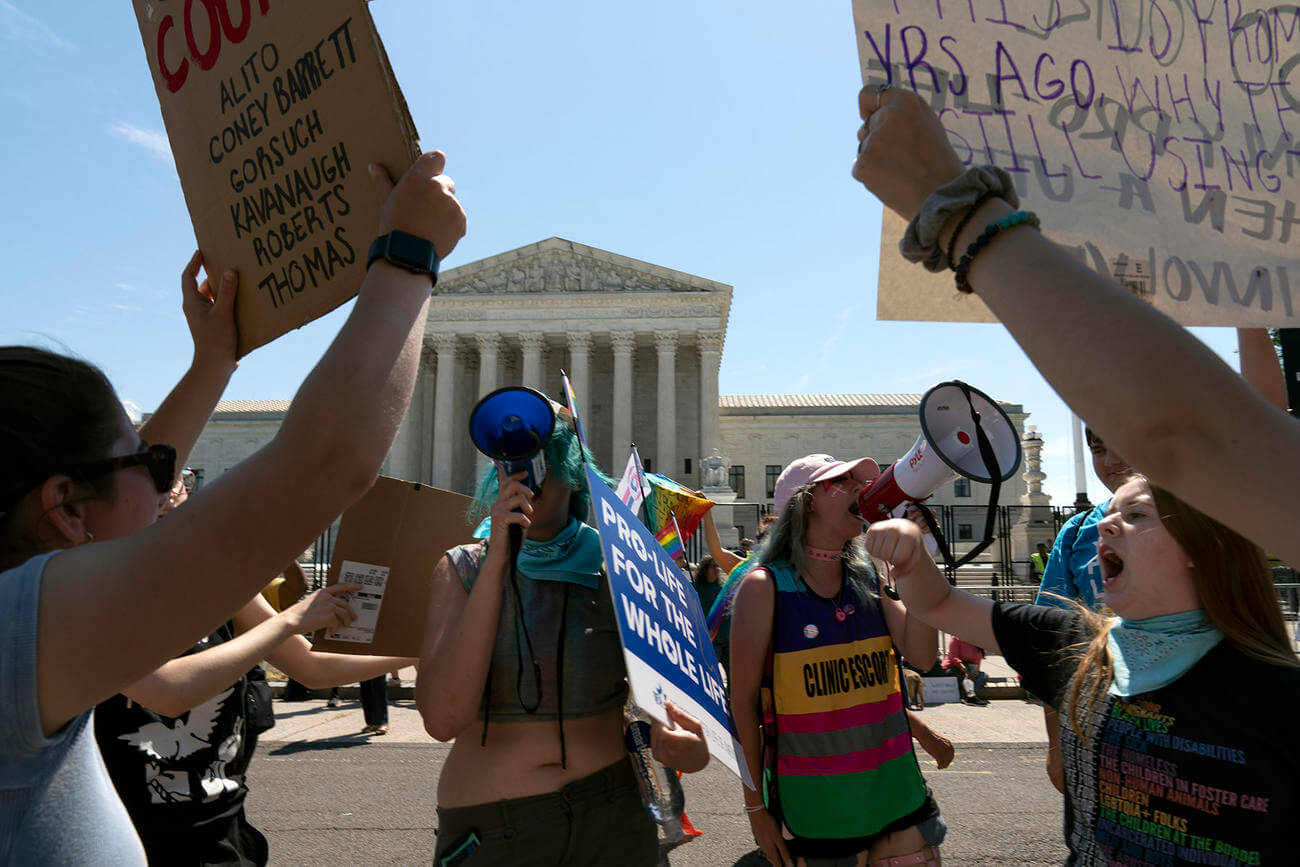

There have been 91 abortions performed in U.S. military hospitals since 2016, at least two-thirds of which were for active-duty service women whose lives were threatened by their pregnancy or who were victims of a crime.
The Pentagon’s ability to provide abortions in military treatment facilities or through civilian providers under Tricare, the military’s health program, is sharply curtailed by law and is comparable to the restrictions now being rolled out in at least 11 states following the U.S. Supreme Court’s decision last week that struck down a long-standing constitutional protection on abortion.
Since 1976, under the Hyde Amendment, the Defense Department can only provide abortions if the life of the mother is at risk should she carry her fetus to term or if the pregnancy is the result of rape or incest.
Read Next: Army Swiftly Backpedals on Policy Dropping High School Diploma Requirement
As such, abortions remain rare in military hospitals. From 2016 to 2021, physicians at military facilities performed 35 abortions for Army personnel or dependents, 30 for Navy sailors or dependents, 20 for Air Force personnel or dependent family members, and six for Marines or their dependents, according to a Defense Department report provided to Congress and obtained by Military.com.
The figures do not include procedures covered by Tricare, which must follow the same restrictions. Neither do they cover voluntary abortions sought privately by military personnel who must cover their own costs.
Service members’ access to abortion has become a concern since the Supreme Court ruled Friday to overturn the decision in the 1973 Roe v. Wade case. The court’s new ruling allows states to institute their own abortion laws, and more than a dozen had been poised to act.
The ruling, Dobbs v. Jackson Women’s Health Organization, let 13 states immediately ban abortion or curtail it within 30 days — including states that house more than 240,000 U.S. service members.
Gil Cisneros, the under secretary of defense for personnel and readiness, wrote in a memo Tuesday to Pentagon leadership that the Defense Department is reviewing the ruling, but added that it creates “complicated” issues for U.S. service members who live in states where the procedure is banned.
“The implications of the Supreme Court’s decision are complicated and must be evaluated against various state laws together with the views of the Department of Justice,” Cisneros wrote.
He added that there would be no interruption in access to abortion services provided to troops under current law nor would policies regarding leave change as a result of the ruling.
The report provided to Congress this year marks a change from previous years, which furnished data on abortion procedures namely for active-duty military personnel only. Under that system, the services reported that 60 service women received abortions in military hospitals, including 25 soldiers, 21 sailors, 14 Air Force personnel and no Marines.
The numbers now include spouses or family members who receive health care through the military at DoD treatment facilities.
The data provided to Congress provides little context on the procedures and does not say where they were performed. Under policies set forth by the services, military health care providers who object to abortion on moral or religious grounds are not required to perform or assist with the procedure.
The data also does not include ectopic pregnancies or procedures conducted as a result of a partial miscarriage and only focuses on terminations that would otherwise result in a live birth.
According to the Defense Health Agency’s May 2021 Medical Surveillance Monthly Report, 3,926 service women had a miscarriage, ectopic pregnancy or abortion in 2020. That report offers no further data on the individual diagnoses, other than they accounted for 9,665 medical appointments or treatments that year.
The diagnoses have risen as more women have joined the U.S. military. In 2016, 3,563 service women experienced a miscarriage, ectopic pregnancy or abortion, accounting for 8,059 medical visits.
Women now make up nearly 20% of the U.S. armed forces.
The research is scant on the number of service women who have received abortions privately.
A self-reported survey conducted in 2011 found that 7% of active-duty women reported having an unintended pregnancy the previous year, compared with 4.5% in the general U.S. population.
The Defense Health Agency and Defense Department has refused since May to provide Military.com the data on abortions performed at military health facilities or those covered by by the Tricare health program in the past five years.
Shortly after the Supreme Court’s decision was announced, Defense Secretary Lloyd Austin pledged to review DoD policies and issue guidance if needed to ensure that service members continue to have access to abortions under federal law.
“Nothing is more important to me or to this department than the health and well-being of our service members, the civilian workforce and DoD families,” Austin said in a statement.
– Patricia Kime can be reached at [email protected]. Follow her on Twitter @patriciakime
Related: Nonprofits Are Filling a Void of Fertility Help for Service Members, But Hope Congress Steps Up
© Copyright 2022 Military.com. All rights reserved. This material may not be published, broadcast, rewritten or redistributed.
